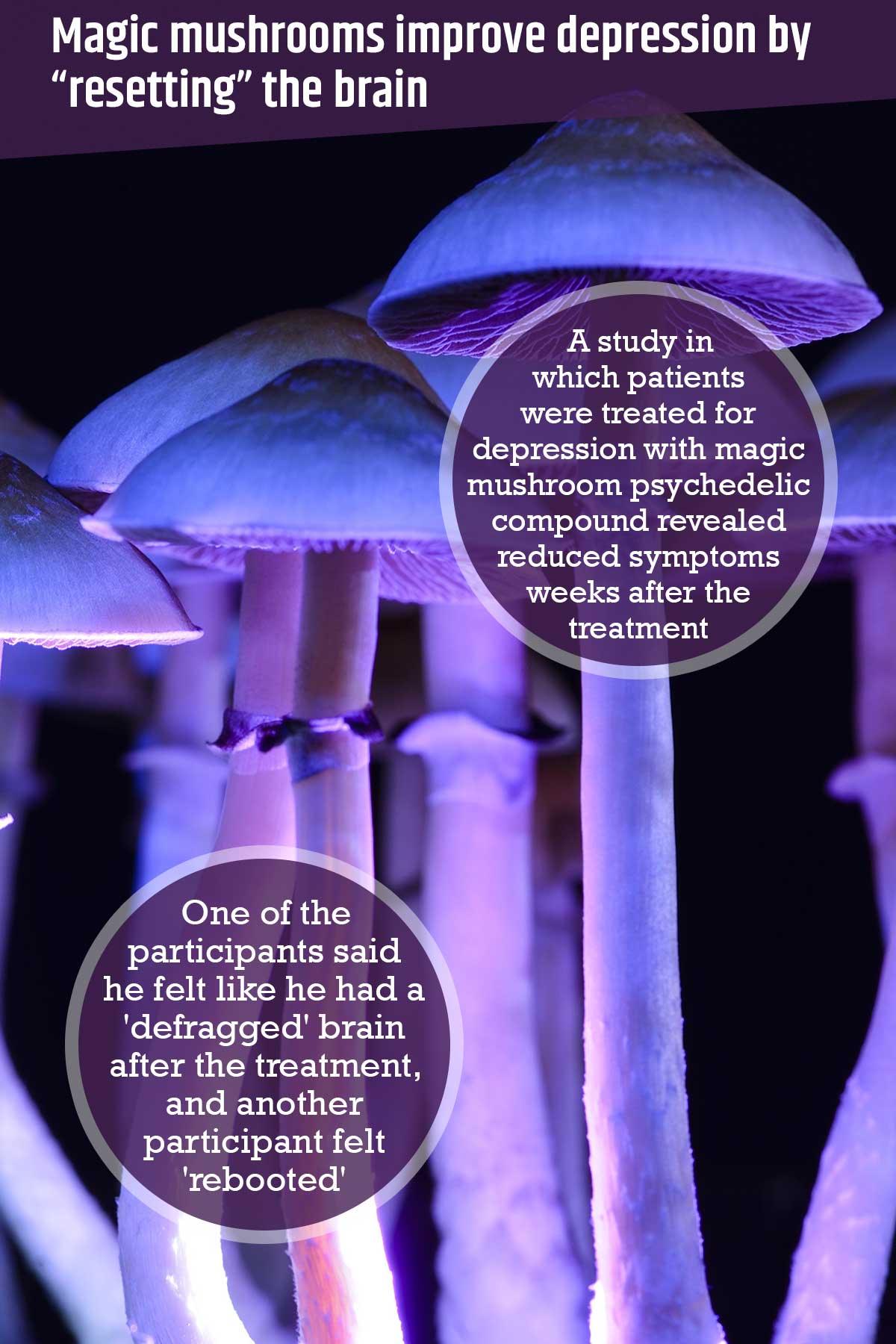A study in which patients were treated for depression with psilocybin (magic mushroom psychedelic compound) revealed reduced symptoms weeks after the psilocybin treatment.1✅ JOURNAL REFERENCE
DOI: 10.1038/s41598-017-13282-7
The participants of the study were depression patients who had not responded successfully to conventional treatment. Changes in brain activity were clearly seen with the psilocybin treatment in people with depression that did not respond successfully to the conventional treatments.
Benefits were reported by the patients which lasted for up to 5 weeks following the treatment, and the researchers believe the activity of key brain circuits known to play a part in depression may effectively be “reset” by the magic mushroom compound.
Comparison of brain images of the participants before the psilocybin treatment and a day after revealed brain activity changes that were associated with clear and lasting depression symptom reductions.
After the treatment, several of the study participants described a feeling of being ‘reset’ and often made use of computer analogies. One of the participants said he felt like he had a ‘defragged’ brain after the treatment, and another participant felt ‘rebooted’.
Psilocybin could give a ‘kick start’ which is desperately needed to break out of a depressive state and the imaging results do support the ‘reset’ analogy.
For the study, 20 treatment resistant depression patients received a 10mg dose of the psilocybin and a second 25mg dose a week later. Nineteen of the patients had initial brain image scans and then another scan a day after the second 25mg dose.
Two brain imaging methods were used for measuring blood flow changes and the brain region crosstalk, with symptoms of depression reported by completing clinical questionnaires.
A reduction in symptoms of depression was reported immediately after the psilocybin treatment, with an ‘after-glow’ effect reported, characterized by mood improvement.
fMRI showed a reduction in blood flow in brain areas, which included the amygdala, an area of the brain known to be involved in emotional response processing.
An increase in stability in another area of the brain associated with the immediate effects of psilocybin as well as depression itself was also found.
The researchers caution that depression patients should not try to self-medicate, as the study provided a safe environment for the drug experience.



